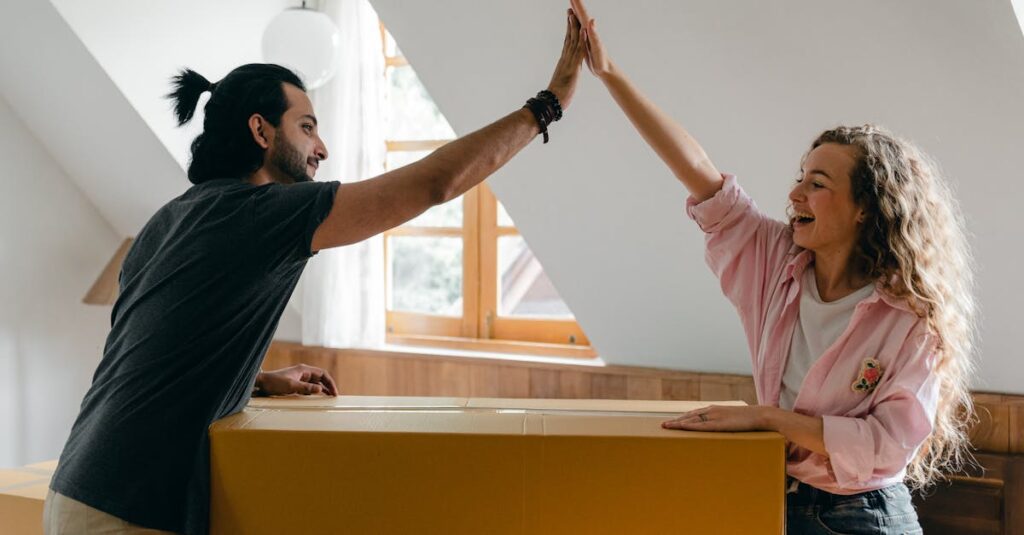Table of Contents
ToggleIn a world overflowing with stuff, the minimalist lifestyle is like a refreshing breath of fresh air—or maybe just a whiff of that new car smell after you’ve cleared out the clutter. More people are ditching the excess and embracing simplicity, trading their overflowing closets for a chic capsule wardrobe and their chaotic homes for serene spaces.
Overview of Minimalist Lifestyle Trends
Minimalism represents a shift towards intentional living and away from excessive consumption. People prioritize quality over quantity, making deliberate choices about the items they own. Capsule wardrobes exemplify this trend, featuring versatile clothing pieces that encourage creativity while reducing clutter.
Living spaces also reflect minimalist values, with many embracing open floor plans and limited decor. This simplicity fosters tranquility, allowing individuals to focus on what truly matters. In 2022, a study revealed that 62% of participants reported decreased stress due to simplified environments.
Minimalist lifestyle trends extend beyond physical possessions. Individuals frequently emphasize mental clarity and emotional well-being, viewing minimalism as a holistic approach to life. Obtaining experiences rather than material goods ranks high on their priorities. Traveling light resonates with those seeking freedom and authenticity.
Technology influences this lifestyle too, as many turn to digital solutions for organization and productivity. Apps designed for decluttering and task management have gained popularity, enabling users to streamline their lives further.
Social media plays a crucial role in shaping minimalist trends, with influencers sharing tips and experiences. Platforms like Instagram and Pinterest showcase clean aesthetics and minimalist principles, inspiring thousands to embark on their own journeys.
Embracing minimalism fosters stronger connections, as reduced distractions enhance relationships with others. Individuals often report a heightened sense of community, gravitating toward like-minded people who share their values. By opting for simplicity, many find fulfillment and purpose in their everyday lives.
Benefits of Minimalism
Minimalism offers numerous advantages that enhance overall well-being and lifestyle quality. Individuals often experience significant improvements in various life aspects when embracing this lifestyle.
Mental Clarity and Focus
Mental clarity increases as clutter reduces, allowing for enhanced focus and productivity. A simpler environment eliminates distractions, aiding individuals in concentrating on tasks that truly matter. Many find themselves more creative and inspired when they spend time in uncluttered spaces. Additionally, living minimally encourages a mindfulness practice, which deepens awareness and promotes mental peace. Studies show that people report clearer thinking and improved decision-making after simplifying their surroundings.
Financial Savings
Financial savings are another significant benefit of adopting a minimalist lifestyle. People often spend less on unnecessary items, prioritizing quality over quantity. By simplifying their possessions, individuals can make more informed purchasing decisions. This shift contributes to long-term financial stability, as minimized spending directly impacts budgets positively. Moreover, reduced accumulation leads to lower maintenance costs for belongings, from fewer items to clean and repair. Ultimately, embracing minimalism fosters a healthier relationship with money and spending habits.
Key Minimalist Lifestyle Trends
Minimalism embraces simplicity across various aspects of life. Several key trends illustrate this movement’s growing influence.
Decluttering and Simplifying
Decluttering remains fundamental to minimalism. Individuals actively sort through possessions to identify necessities instead of clutter. Many choose capsule wardrobes consisting of versatile clothing items, allowing for easier outfit selection. Living spaces often transform into serene environments with limited decor, promoting relaxation. A 2022 study revealed that 62% of participants reported reduced stress in simplified surroundings. Simplifying life fosters clarity and enhances focus, enabling individuals to concentrate on what truly matters.
Sustainable Living
Sustainable living aligns closely with minimalist principles. People increasingly seek eco-friendly products and prioritize quality over quantity in their purchases. They support brands that emphasize sustainable practices and use recyclable materials. This commitment reduces waste and contributes to environmental preservation. As individuals adopt more conscious purchasing habits, they streamline their lives while benefiting the planet. Overall, integrating sustainability into minimalism enhances the lifestyle and encourages responsible consumption.
Digital Minimalism
Digital minimalism plays a significant role in modern minimalist trends. Users prioritize essential apps and limit distractions from technology. Reducing screen time fosters mental clarity and allows for more present interactions. Organizing digital spaces, such as desktops and mobile devices, improves productivity and focus. By adopting tools that enhance efficiency, they create a streamlined digital environment. Emphasizing intentional technology usage supports the minimalist goal of living a more intentional life.
Challenges of Adopting Minimalism
Adopting minimalism presents unique challenges for many individuals exploring simplified living. Transitioning from a cluttered lifestyle requires confronting various emotional and societal barriers.
Emotional Attachment to Possessions
Many people struggle with emotional attachments to their belongings. Sentimental items often hold memories, making it difficult to let go. When individuals attempt to declutter, thoughts of what these items represent can create resistance. Organizing possessions can become an overwhelming task as they weigh potential loss against the benefits of simplicity. Furthermore, strong attachments to material goods can lead to anxiety during the decluttering process. To simplify effectively, one must recognize the difference between necessity and sentimentality. Acknowledging emotions allows for intentional decisions regarding what to keep and what to release.
Societal Expectations
Societal expectations add another layer of complexity to minimalism. Cultural norms often equate success with material wealth, creating pressure to accumulate possessions. Friends and family may unknowingly reinforce these beliefs, making individuals feel isolated in their minimalist journey. Fear of judgment surrounds those who choose to embrace a simpler lifestyle, as they might face skepticism or misunderstanding. Balancing personal values against external expectations can lead to internal conflict. Individuals pursuing minimalism benefit from building supportive communities that respect their choices. Sharing experiences with like-minded people fosters motivation and encouragement on the minimalist path.
Embracing a minimalist lifestyle offers a pathway to greater clarity and fulfillment. By prioritizing quality over quantity and focusing on intentional living, individuals can cultivate a sense of peace in their environments. The benefits extend beyond physical spaces, enhancing mental well-being and fostering deeper connections with others.
While challenges may arise in the journey towards minimalism, building supportive communities can provide the encouragement needed to overcome obstacles. As this trend continues to grow, it’s clear that minimalism isn’t just a fleeting movement but a sustainable approach to living a more meaningful life.






